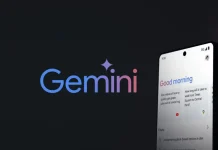Over the past year, Google has confronted two significant challenges in its 25-year history: the emergence of generative AI and increasing regulatory scrutiny. The impact of AI has prompted substantial changes within the company, including significant alterations to its search algorithms, realignment of core teams around AI initiatives, and the launch of its own Gemini AI model to seize the opportunities presented.
To refocus its efforts, Google executives have implemented project cuts and staff layoffs. Recently, the company announced its inaugural dividend and a $70 billion share repurchase program alongside its Q1 2024 earnings report.
Investors have responded positively to these developments, propelling Google parent company Alphabet to officially attain and sustain a $2 trillion market capitalization for an entire trading day, following a brief touch of $2 trillion in November 2021. Currently, Google ranks as the fourth most valuable public company globally, trailing behind Nvidia, Apple, and Microsoft.
In contrast to Meta’s stock decline after Mark Zuckerberg’s remarks about the lengthy path to profitability in generative AI ventures, Google has begun to monetize AI in various ways. For instance, it has integrated AI capabilities into its Performance Max tool, enabling advertisers to target audiences more effectively. Additionally, companies like Discover Financial and Ikea are leveraging AI tools for call center operations and revenue optimization.
While Google remains cautious about disrupting its core search business, it acknowledges the potential for AI to enhance the search experience. Despite this, CEO Sundar Pichai reassures stakeholders that the company is adept at managing the costs associated with serving AI-generated queries.
Google’s existing business segments continue to perform well, with Q1 2024 revenue reaching $80.5 billion, a 15 percent increase year-over-year. Notably, profit margins also improved, yielding $23.7 billion in profit, a 14 percent increase compared to the previous quarter.
While Google undertook significant workforce reductions in recent months, recent financial reports suggest that layoffs may have tapered off. Despite an expenditure of $716 million on severance and related expenses during the first quarter, revenue growth remains robust across search, advertising, and other segments.
Looking ahead, Google aims to strengthen its position in the short-form video market, with a focus on YouTube Shorts. The platform has witnessed a surge in creator uploads and monetization rates, signaling promising growth prospects.
Google’s upcoming developer conference, Google I/O, scheduled for May 14th, is expected to shed further light on the company’s future initiatives and innovations.








